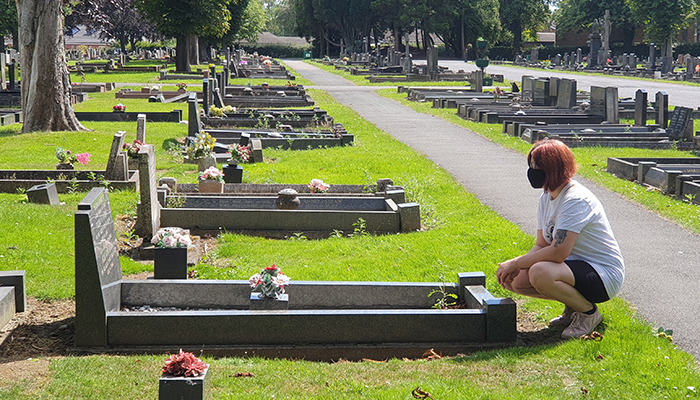Learn more at AgingWellMetroDC.com
Our Monthly Newsletter
Helpful tips for family caregivers
October/November 2020 Print
Health risks of Korean War vets
 Close to 2 million American soldiers fought in the Korean War from 1950 to 1953.
Close to 2 million American soldiers fought in the Korean War from 1950 to 1953.
More than half of those who served in what is often called the “Forgotten War” are still alive.
Most of these soldiers were born during the 1920s and 1930s. They are now in their 80s and 90s, with some cresting 100 years of age.
Perhaps you have a family member who fought in that war.
More than 150,000 American soldiers were killed or wounded in the Korean War.
Everyone who served in Korea was subject to extremely cold and wet conditions. The soldiers suffered from frostbite, trench foot, and hypothermia.
Although these injuries occurred decades ago, they set up Korean War veterans for a particular array of health problems in old age:
- Numbness of the feet. Lack of feeling in the feet often leads to poor balance and frequent falls. Also lack of awareness of wounds and infections, which can result in the need for amputation. If the veteran has diabetes, the risk of amputation is even greater.
- Peripheral vascular disease (PVD). This disease affects the blood vessels, causing them to narrow and sometimes spasm. Blood flow in the legs decreases, causing pain.
- Skin cancers. Korean War vets are getting cancer at the site of their frostbite scars. Usually this is on the feet and earlobes.
- Arthritis in previously cold-injured areas.
- Nighttime pain.
- Extra sensitivity to cold.
Also, aging veterans of any war may experience delayed symptoms of posttraumatic stress disorder (PTSD). These symptoms commonly include nightmares, insomnia, and/or increased anxiety.
If the Korean War vet in your life is experiencing any of these issues, contact the nearest VA Environmental Health Coordinator. (Find them at https://bit.ly/2OAMKSl.) Explain that your relative fought in the Korean War. The VA knows about these problems and can offer resources to help.
Return to topSupporting a person with arthritis

Arthritis is a difficult condition to understand as an onlooker. The pain is invisible and unpredictable. Some days are good. Other days are not. Arthritis challenges the affected person’s ability to accomplish the basics—simple tasks, such as opening jars or walking up stairs. Such disability can generate feelings of frustration and low self-worth. The chronic pain may also lead to fatigue, depression, and anxiety.
The link between arthritis and depression is particularly insidious: 19% of those with arthritis experience depression, as compared to only 8% of the general population. For those with arthritis, there is a vicious cycle: Pain, fatigue, and disability lead to depression. And depression leads to a greater perception of pain and a reduced ability to marshal one’s forces to manage the pain.
Fortunately, family support can help break the cycle:
- Learn what you can about the particular form of arthritis affecting your loved one.
- Understand that symptoms come in flares. It changes from day to day. Ask each day how the pain is on a scale of 1 (no pain) to 10 (extreme pain).
- Ask your relative about what life is like with this condition. What is frustrating? What is tiring?
- Support them to cultivate hobbies that have a low impact on joints.
- Ask how you can help. Don’t assume. There is a downside to helping too much. It can exacerbate a person’s sense of low self-worth.
- Encourage your relative to actively manage the pain and flares. Respect their decisions about what works best for them. The unpredictability of arthritis has already robbed them of the ability to control many aspects of their lives. They need to retain control in as many other areas as possible.
Suggest your loved one talk to the doctor about depression. One of the best ways to break the depression–pain cycle is to treat both.
Return to topWhen you can't hold a funeral
Between travel concerns and restrictions on group gatherings, holding a traditional funeral can be challenging. Many families are turning to “virtual funerals” using video conferencing programs, such as Zoom.
About 20% of funeral homes offer virtual services. And there are online companies that specialize in funerals. They assist with everything from sending out invitations and designing the ceremony to recording the event and providing tech support if needed.
If you are planning a virtual ceremony, consider:
- How formal a gathering do you want? Will there be an opening and closing? A eulogy? Music? Or do you want something more like a wake with attendees sharing fond memories? Perhaps a combination.
- Do you want to have a slide show or videos? Family members can contribute what they have. Photos can be compiled into a PowerPoint presentation. Or consider free online memorial scrapbooks, such as LifeWeb360.com.
- Do you want to include special activities, such as a toast, a prayer, or moments of silent reflection?
- Group singing does not work well in video conferencing. Instead, have one person sing while all others are muted. Send out the lyrics ahead of time and invite attendees to sing along at home.
- Ways to create a group feeling:
- Plan for everyone to light a pillar candle at the same time. Or ask each person to light one when they speak.
- Encourage group gestures (hands on heart, hands in prayer, hands making a heart).
Some family members may need help with the technology. Get them set up. Practice in advance. Also be sure to record the session for those unable to attend in “real time.”
Many families say that a virtual service is surprisingly meaningful. It’s not the same as in person. But it does create feelings of support and connection that ease the pain of loss.
